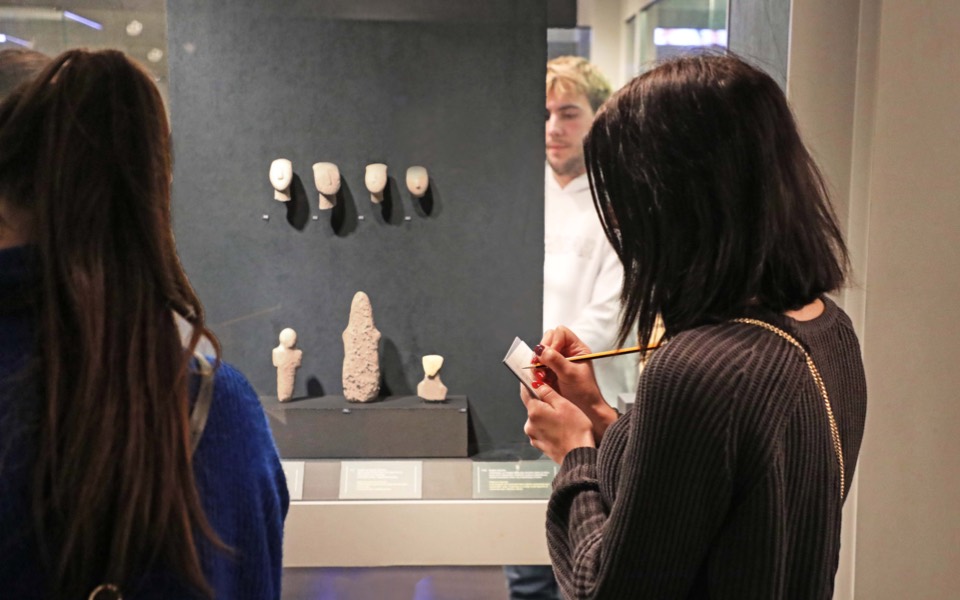Mental wellness is undoubtedly one of the most pressing issues of our time, with nearly half of the world’s population experiencing a severe or prolonged period of deliberating anxiety or depression at some stage in their lives. Even more disconcerting is that around 20 percent of the world’s children and adolescents suffer from a mental health condition, with suicide the “leading cause of death among 15 to 29-year-olds,” according to the UN World Health Organization.
These grim statistics are only set to get worse, as communities across the globe continue to grapple with the aftereffects of the three-year-long pandemic, with many having experienced lengthy periods of isolation. One thing is for certain: as we emerge from this unprecedented crisis, society needs to develop new ways to promote mental health, especially among young people.
To that end, the Athens-based University of Mental Health Research Institute (UMHRI) has teamed up with the Museum of Cycladic Art to design an innovative program of interactive workshops, specialized tours and lectures, aimed at improving the mental health and wellbeing of teenagers and young adults.
Renowned for its extraordinary range of community outreach programs, accessibility and inclusion is a core philosophy of the Museum of Cycladic Art. The museum has launched multiple initiatives in recent years, tailored to those who are often marginalized in terms of cultural opportunities, including the over-65s, refugees, and people with a range of physical and sensory disabilities.
Its extensive collection of ancient Greek art, including one of the most complete private collections of Bronze Age Cycladic art worldwide, offer visitors an unparalleled insight into the aesthetics of Greek and Aegean culture, from prehistory through Late Antiquity. Not only does it provide the perfect space for learning, which in itself can be hugely beneficial to mental wellbeing, from a purely psychological standpoint, the museum can serve as a creative sanctuary to help reduce feelings of anxiety, isolation and depression.
While still in its infancy, the nascent field of art therapy, backed up by cutting-edge research in neuroesthetics, is rapidly gaining traction as an effective tool in the treatment of a wide range of mental health issues. Upheld as hubs of knowledge and culture, museums and art galleries are now being seen as important spaces to relieve mental stress, providing a platform for people to develop new skills and to engage in positive social experiences that are both inspirational and meaningful.
Through specialized guided tours and workshops, participants in the new program at the Museum of Cycladic Art can engage with the ancient artworks on display, promoting positive emotions such as hope, enjoyment and optimism.
According to the UMHRI’s scientific supervisor, Professor Marina Economou, the initiative seeks to “shed light on the mystery of the human psyche, to motivate visitors to think… and, ultimately, to act.”
For more information, visit the Museum of Cycladic Art website.












